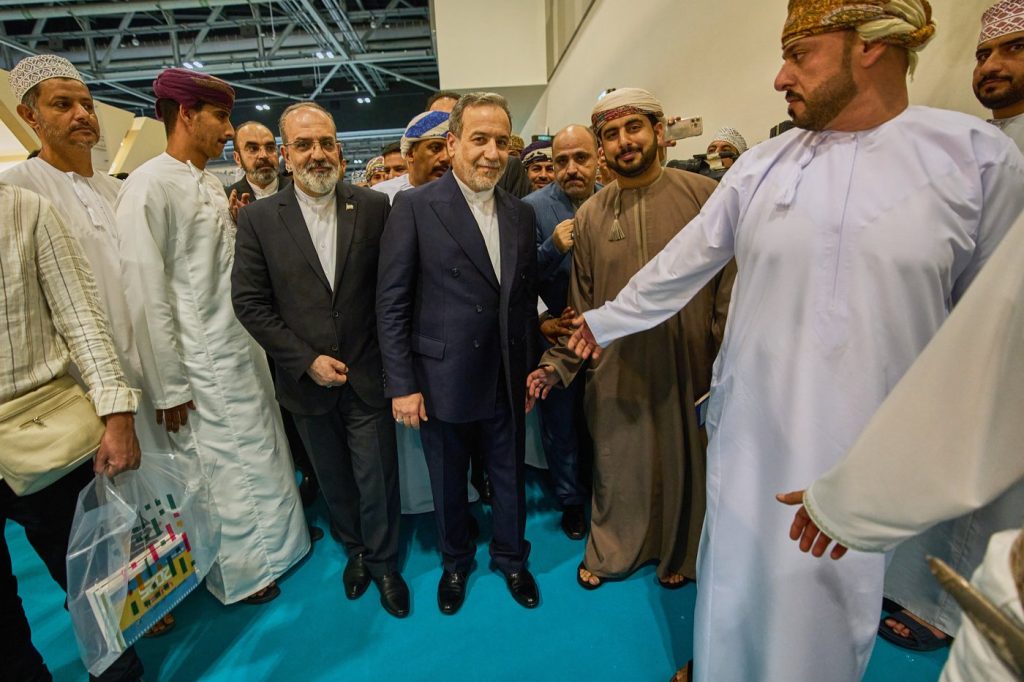DUBAI, United Arab Emirates (AP) Iran and the United States have initiated a fourth round of negotiations concerning Tehran's rapidly advancing nuclear program, which began on Sunday in Oman. This meeting comes just before President Donald Trump's planned visit to the Middle East. The negotiations aim to address the complexities surrounding Iran's nuclear capabilities and the sanctions imposed by the U.S. on the Islamic Republic.
Oman's Foreign Minister Badr al-Busaidi is expected to mediate the talks, which will involve both direct and indirect negotiations, similar to prior discussions held in Muscat and Rome. While specific details of the talks remain scarce, the objective is to limit Iran's nuclear program in exchange for the potential lifting of some economic sanctions that have devastatingly impacted Iran's economy.
Trump has issued repeated threats to take military action against Iran if a suitable agreement is not reached. Iranian officials have countered these threats by indicating that they may accelerate their nuclear weapons ambitions, as they possess uranium enriched to near weapons-grade levels. Additionally, Israel has issued warnings of potential strikes against Iranian nuclear facilities should it perceive any threat, further escalating the ongoing tensions in the region, already heightened by the recent Israel-Hamas conflict.
As outlined in the negotiations, Iranian Foreign Minister Abbas Araghchi and U.S. Mideast envoy Steve Witkoff will lead discussions. Although face-to-face meetings have occurred, many of the communications have been indirect, facilitated by al-Busaidi. Iran has stated firmly that maintaining its enrichment capability is non-negotiable, while Witkoff's statements regarding U.S. demands have shifted, with his latest declaration being that "all enrichment must stop," establishing a definitive U.S. red line.
During a recent interview, Witkoff stressed that an enrichment program in Iran could never coexist with their negotiations. He specified that dismantlement of enrichment facilities in Natanz, Fordow, and Isfahan is a necessity to secure any deal. Conversely, Araghchi reiterated that uranium enrichment is a right that is integral to Iranian identity and must not be compromised. He emphasized the historical and national significance of their nuclear achievements and the sacrifices made by Iranian scientists.
The original 2015 nuclear deal, from which Trump withdrew in 2018, had limited Iran's enrichment to 3.67% purity, sufficient for nuclear energy but far from weapons-grade levels. Following the collapse of this agreement, Iran has intensified its nuclear activities, raising enrichment levels to nearly 60% purity—just a technical step away from weapons-grade enrichment, raising alarm among international observers.
Domestic pressures in Iran have escalated amid the economic strains from sanctions. The Iranian rial, which once hit over 1 million to 1 U.S. dollar, has shown some recovery, now trading around 830,000 to 1 dollar, attributed partly to optimism surrounding negotiations. Yet, both sides appear distant from securing an agreement as Trump has reportedly imposed a two-month deadline, coinciding with his upcoming trip to Saudi Arabia, Qatar, and the United Arab Emirates.
Internal political dynamics have also been tumultuous, particularly surrounding issues like the enforcement of mandatory hijab laws, which have sparked protests. There are ongoing concerns regarding potential increases in subsidized gasoline prices, which have historically led to widespread unrest.
The most recent talks in Oman occurred against a backdrop of unrest, marked by an explosion at the Shahid Rajaei port, which resulted in significant casualties and injuries. This incident remains officially unexplained but is suspected to involve a controversial shipment linked to missile fuel components.











